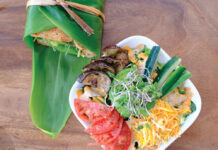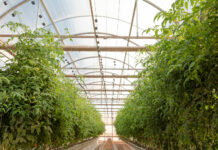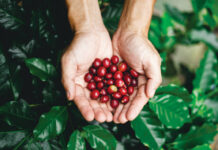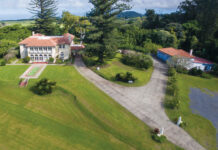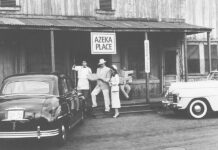Story by Jill Engledow & Rita Goldman | Photography courtesy of Noni Biotech & Nina Lee
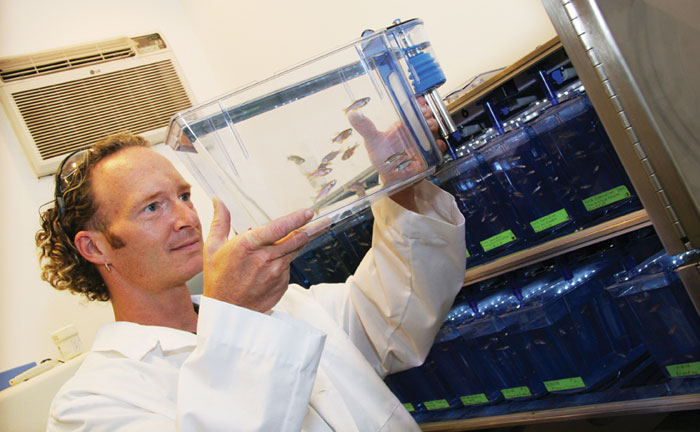 What do a smelly fruit, Hurricane Katrina, a nuclear magnetic resonance machine, and a pool of genetically transformed zebra fish have in common? They’re part of the story of Noni Biotech International, a Maui-based company whose research into an ancient Polynesian plant may offer new hope in the fight against cancer.
What do a smelly fruit, Hurricane Katrina, a nuclear magnetic resonance machine, and a pool of genetically transformed zebra fish have in common? They’re part of the story of Noni Biotech International, a Maui-based company whose research into an ancient Polynesian plant may offer new hope in the fight against cancer.
Noni is a small evergreen tree with a notoriously stinky fruit—and a reputation for so much medicinal mana that Polynesians carried it with them in their voyages around the Pacific for thousands of years.
“The Hawaiians used it for 200 different ailments,” says David Backstrom, a naturopathic physician and Noni Biotech’s CEO. A poultice of fresh noni leaves is said to sooth bruises and cool fevers; the ripe fruit is used to treat wounds, infections and rheumatism; and a tea made from its bark helps alleviate jaundice. Roots, stem, bark, fruit, leaves—Hawaiians believe every part of the plant has healing properties, from treating hypertension and diabetes, to boosting the immune system and fighting cancer.
Scientists think the Hawaiians may be right.
In 2005, researchers at Louisiana State University announced the discovery of a compound in noni juice that has the potential to stop the growth of breast-cancer tumors. The compound—which LSU patented as Super Noni—works by inhibiting angiogenesis. That’s a five-dollar word for the process that creates new blood vessels from existing vessels in the body.
With the exception of a few normal functions, such as menstruation, pregnancy, and the healing of wounds, healthy adult humans have no need to create new blood vessels. Cancer tumors turn angiogenesis back on. Like other living tissue, tumors need oxygen and nutrients, and blood vessels to deliver them. LSU’s researchers noted that, without new blood vessels, a tumor can’t grow bigger than eight one-hundredths of an inch. Which is why Super Noni’s antiangiogenic properties hold such tantalizing promise.
And why Noni Biotech found itself supplying the raw material for LSU’s research.
Headquartered on Maui, Noni Biotech buys more than a million pounds of noni fruit each year, the majority from some sixty farmers on Hawai‘i Island, where most of the lava-loving crop is grown. Its Hilo facility turns the fruit into dehydrated powders and capsules, bottled juice, and a range of spa products sold under the names Noni Maui and Maui Noni. “We are the biggest Hawaiian noni processor, and the only factory to make juice concentrate,” says Backstrom’s wife and business partner, Marie-Laure Ankaoua, Noni Biotech’s COO.
The company’s products have such high potency and purity that LSU awarded Noni Biotech exclusive license to its Super Noni patent. And scientists at the University of Hawai‘i have used Noni Biotech’s capsules to study the dosage at which noni can be safely and effectively tested on humans.
Those human clinical trials probably won’t come anytime soon. At the time of their 2005 report, LSU’s scientists were using nuclear magnetic resonance and mass spectrometry to try to isolate the active ingredients in Super Noni, with the goal of concentrating them in capsule form. Then a little weather disturbance named Hurricane Katrina hit Louisiana, and closed the project down.
“We’ve picked up where they left off,” says Paul Nordone, Noni Biotech’s director of research and development.
That research takes place behind an unobtrusive door at the back of Ha‘ik¯u Cannery Marketplace, where Nordone, a former scientist with Amgen, the world’s leading biotech company, enthusiastically shows off the transgenic zebra fish that are helping him expand on the LSU study to isolate noni’s individual compounds.
“LSU’s initial work was done on breast-cancer cells in a Petri dish,” he says. “We’ve taken the angiogenesis study a step further by using the zebra fish. It’s a whole organism; it gives more information than a cell culture can. Within the first weeks of life, zebra fish don’t have an immune system, so you can inject them with human tumors, develop a mass, and treat them with the compound.
“A lot of the proteins in the zebra fish are similar to those in the human vascular pathway, which makes it a good research model. When you compare the sequence of amino acids, the fish are very similar to humans.”
Because embryonic and immature zebra fish are transparent, you can watch the microscopic processes of angiogenesis and antiangiogenesis as they’re happening. After a few days, zebra fish start to lose their transparency, which is why Nordone works with transgenic ones—fish that have had a gene inserted into their DNA. “As the fish grows, it expresses a green fluorescent protein in the blood vessels,” he says. The result? A common aquarium fish whose blood just happens to glow bright green.
If Nordone can identify and isolate the active ingredients in noni, “there’ll need to be a whole host of tests to make sure it’s efficacious” before it get tested on people, he says. “Would a combination of noni and a lower dose of chemotherapy work better for cancer patients? There are lots of questions that need to be designed and put into a study.”
Sales of Noni Biotech’s health and spa products have doubled every year since 2004, and are expected to reach $2 million by the end of 2009. That’s good news for all of us, because the company uses the profits from those product lines to fund its research. Ankaoua, who holds a master’s degree in tax and business law, says the company also hopes to attract investors; Noni Biotech is approved by the State of Hawai‘i for Act 221, which provides an 80 percent tax credit to individuals and companies that invest in technology in the Islands. And if a major biotech research company wanted to partner with Noni Biotech, that would be fine, too.
David Backstrom hopes eventually to develop a Maui noni plantation “where people could tour fields where the plants are cultivated and learn about how Hawaiian medical practitioners used these plants for different ailments.
“Our vision is to help people, using all-natural, nontoxic compounds isolated from indigenous Hawaiian plants.”
Herb’s Herbs
Noni Biotech’s roots are in two Maui businesses—Resort Medical Products, Ltd., and Herb’s Herbs. “Herb” is Maui native and noni pioneer Herbert Moniz, who in 1992 received a patent for his process to dehydrate noni into a tasteless, unscented powder—thereby eliminating the need to hold one’s nose to ingest the stinky stuff.
Moniz reminds you of the bootstrap inventors of an earlier era. A local guy who worked as a carpenter well into middle age, he switched careers, becoming a licensed massage therapist. His interest in noni began in 1985, the year Herbert’s wife, Lona, was diagnosed with breast cancer.
“She went through chemo, then radiation, then chemo,” Moniz recalls. “I saw her throwing the pills down the toilet, because ‘I can’t handle no more.’”
At a cousin’s recommendation, Lona started taking noni pulp. “Her white cells got better. Her reports got better. The cancer never came back.”
Herbert found the taste and smell of noni pulp so repellent, he started visualizing capsules. “I told Lona, ‘If I can put this stink thing in a capsule, the whole world can take ‘em.’”
Moniz bought the most expensive dehydrator Liberty House carried, and started experimenting with the pulp. He says the settings that finally yielded the perfect results came to him in a dream.
Larry Land, the owner of Paradise Pharmacy in Pukalani, solved the problem of grinding the dried pulp to powder: “He told me to go get a coffee grinder.” Land also showed Moniz how to put the powder into a capsule. Two years and a lot of money later, Herb’s Herbs had an FDA okay.
In 1993, one year after Moniz won his patent, David Backstrom and Maui oncologist Gregory Park teamed up to form Resort Medical Products, producing and selling a range of vitamins. Their noni products became their number-one seller, and Backstrom and Park—oncologist to Lona Moniz—started looking into the potential healing properties of the plant.
In 2006, the company, now Noni Biotech, joined forces with Herb’s Herbs, a collaboration that brought the company Moniz’s equipment, trade name and know-how.

